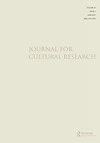政治经济背景下的阴谋论:来自疫苗和其他药品问题家长的教训
IF 0.6
Q1 CULTURAL STUDIES
引用次数: 13
摘要
对处于后期阶段的美国资本主义来说,操纵利润和推托是不言自明的,即使在医疗保健领域也是如此。我使用来自南加州父母的数据证明了对这一点的承认如何过度扩展为“错误信念”,这些父母有选择性地接种疫苗,并用大麻治疗顽固性儿科癫痫;我探索适当的回应。两组人的话语都提到了公司自私自利的口是心非,比如虚假地邀请患者参与。家长们还指出,当代衡量健康和公民身份的标准与美国政治经济学对独立、自我负责、“有生产力”的成年期的期望(残疾歧视)息息相关。拒绝规范性和认识论的相对主义,但真诚地关注父母的经验和担忧,我推荐一种功利主义的方法来处理虚假的主张——一种利用文化的潜在流动性,同时考虑到这些主张出现的意识形态和物质矩阵的方法。虽然具有经验可验证基础的非正统观点总是值得考虑的,但那些脱离科学可评估现实的观点可以而且应该受到挑战,具有文化敏感性,与它们的传播可能造成伤害的程度成比例。此外,干预必须让那些有能力解决这些问题的人注意到阴谋担忧所包含的深刻批评。如果一个群体真正关心的问题被认真对待,离散的、没有科学依据的主张可能更容易被放弃。本文章由计算机程序翻译,如有差异,请以英文原文为准。
Conspiracy theories in political-economic context: lessons from parents with vaccine and other pharmaceutical concerns
ABSTRACT Profit-boosting manipulation and subterfuge is axiomatic to late-stage US capitalism, even in healthcare. I demonstrate how acknowledgements of this can overextend into ‘false beliefs’ using data from Southern Californian parents who vaccinate selectively and those treating intractable paediatric epilepsy with cannabis; and I explore appropriate responses. Both groups’ discourses referenced corporations’ self-interested duplicity, such as in sham invitations for patient engagement. Parents also pointed to contemporary measures of good health and citizenship moored to the US political economy’s expectation for independent, self-responsible, ‘productive’ adulthood (ableism). Rejecting normative and epistemological relativism yet attending in good faith to parents’ experiences and concerns, I recommend a Utilitarian approach to spurious claims – one that leverages culture’s potential fluidity while accounting for the ideological and material matrices of such claims’ emergence. Although unorthodox views with empirically verifiable underpinnings always deserve consideration, those unmoored to scientifically assessable reality can and should be challenged, with cultural sensitivity, in proportion to the degree to which their promulgation could underwrite harm. Moreover, interventions must bring the deep critiques that conspirational worries encapsulate to the attention of those with power to address them. If a community’s real concerns are taken seriously, discrete scientifically-untethered claims may be more easily relinquished.
求助全文
通过发布文献求助,成功后即可免费获取论文全文。
去求助
来源期刊

Journal for Cultural Research
CULTURAL STUDIES-
CiteScore
1.40
自引率
0.00%
发文量
23
期刊介绍:
JouJournal for Cultural Research is an international journal, based in Lancaster University"s Institute for Cultural Research. It is interested in essays concerned with the conjuncture between culture and the many domains and practices in relation to which it is usually defined, including, for example, media, politics, technology, economics, society, art and the sacred. Culture is no longer, if it ever was, singular. It denotes a shifting multiplicity of signifying practices and value systems that provide a potentially infinite resource of academic critique, investigation and ethnographic or market research into cultural difference, cultural autonomy, cultural emancipation and the cultural aspects of power.
 求助内容:
求助内容: 应助结果提醒方式:
应助结果提醒方式:


